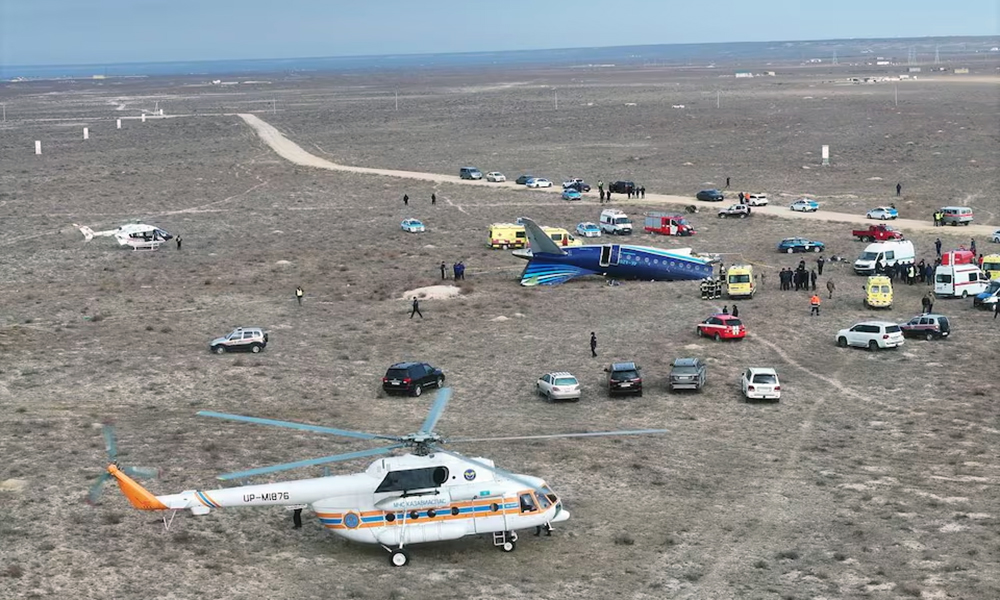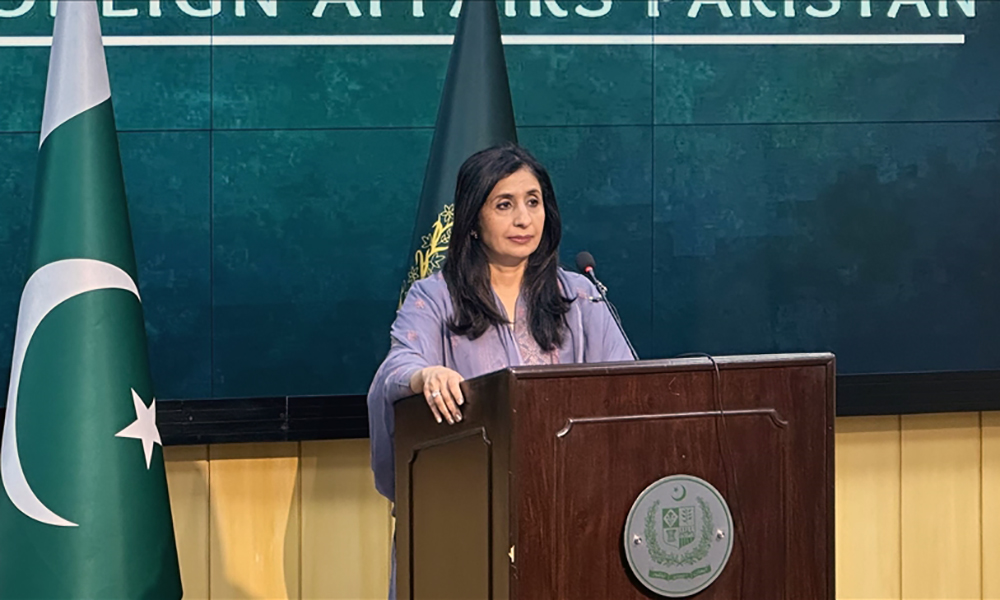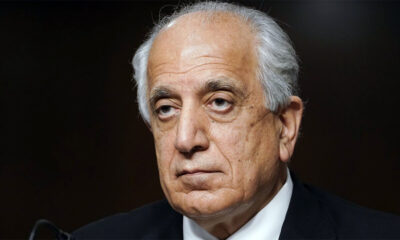Regional
Taliban creates “Parallel System” with the government in Kundoz

 The New York Times from the quotes of local officials and resident of Kundoz on condition of anonymity reported that Taliban has created a parallel system with the government.
The New York Times added that With just two months left before the formal end of the 13-year international combat mission, Western officials insist that the Afghan security forces have managed to contain the Taliban’s offensives on their own. But the insurgents’ alarming gains in Kunduz in recent weeks present a different picture.
Local residents and officials in three of the province’s most challenged areas, the Chahar Dara, Dasht-e-Archi and Imam Sahib districts, described a military and police force unable to mount effective operations. Rather than pushing back on the ground, Afghan forces have opted to shell areas near the capital under Taliban control.
“The fighting in Kunduz did not start this year,” said the acting provincial governor of Kunduz, Ghulam Sakhi Baghlani. “But in past years, we had international forces helping the Afghan security forces.”
Residents and an aid official said that local commanders had been allowing schools to stay open and even distributing pens and notebooks — including at girls’ schools, which were often targets for violence under the Taliban’s rule in the 1990s. They said the insurgents had even given their blessing to international development projects in some areas, which would once have been unthinkable.
“They have a parallel system to the government, one that approves the development projects,” said a stabilization adviser for a U.S.A.I.D. contractor, who spoke on the condition of anonymity because he works in Taliban areas. “We can’t do anything without the Taliban approval.”
The New York Times from the quotes of local officials and resident of Kundoz on condition of anonymity reported that Taliban has created a parallel system with the government.
The New York Times added that With just two months left before the formal end of the 13-year international combat mission, Western officials insist that the Afghan security forces have managed to contain the Taliban’s offensives on their own. But the insurgents’ alarming gains in Kunduz in recent weeks present a different picture.
Local residents and officials in three of the province’s most challenged areas, the Chahar Dara, Dasht-e-Archi and Imam Sahib districts, described a military and police force unable to mount effective operations. Rather than pushing back on the ground, Afghan forces have opted to shell areas near the capital under Taliban control.
“The fighting in Kunduz did not start this year,” said the acting provincial governor of Kunduz, Ghulam Sakhi Baghlani. “But in past years, we had international forces helping the Afghan security forces.”
Residents and an aid official said that local commanders had been allowing schools to stay open and even distributing pens and notebooks — including at girls’ schools, which were often targets for violence under the Taliban’s rule in the 1990s. They said the insurgents had even given their blessing to international development projects in some areas, which would once have been unthinkable.
“They have a parallel system to the government, one that approves the development projects,” said a stabilization adviser for a U.S.A.I.D. contractor, who spoke on the condition of anonymity because he works in Taliban areas. “We can’t do anything without the Taliban approval.”

Regional
Passenger plane flying from Azerbaijan to Russia crashes in Kazakhstan with many feared dead
Russia’s aviation watchdog said in a statement that preliminary information suggested the pilot had decided to make an emergency landing after a bird strike.

An Embraer passenger plane flying from Azerbaijan to Russia crashed near the city of Aktau in Kazakhstan on Wednesday with 62 passengers and five crew on board, Kazakh authorities announced, saying that 27 people had survived, Reuters reported.
Unverified video of the crash showed the plane, which was operated by Azerbaijan Airlines, bursting into flames as it hit the ground and thick black smoke then rising. Bloodied and bruised passengers could be seen stumbling from a piece of the fuselage that had remained intact.
The Central Asian country's emergencies ministry said in a statement that fire services had put out the blaze and that the survivors, including three children, were being treated at a nearby hospital.
Azerbaijan Airlines said the Embraer 190 aircraft, with flight number J2-8243, had been flying from Baku to Grozny, the capital of Russia's Chechnya, but had been forced to make an emergency landing approximately 3 km (1.8 miles) from the Kazakh city of Aktau, read the report.
Russian news agencies said the plane had been rerouted due to fog in Grozny.
Authorities in Kazakhstan said they had begun looking into different possible versions of what had happened, including a technical problem, Russia's Interfax news agency reported.
Russia's aviation watchdog said in a statement that preliminary information suggested the pilot had decided to make an emergency landing after a bird strike.
Following the crash, Ilham Aliyev, the president of Azerbaijan, was returning home from Russia where he had been due to attend a summit on Wednesday, Russia's RIA news agency reported.
Ramzan Kadyrov, the Kremlin-backed leader of Chechnya, expressed his condolences in a statement and said those being treated in hospital were in an extremely serious condition and that he and others would pray for their rapid recovery.
Latest News
Weakened Iran could pursue nuclear weapon, White House’s Sullivan says
Israeli strikes on Iranian facilities, including missile factories and air defenses, have reduced Tehran’s conventional military capabilities, Sullivan told CNN.

The Biden administration is concerned that a weakened Iran could build a nuclear weapon, White House National Security Adviser Jake Sullivan said on Sunday, adding that he was briefing President-elect Donald Trump's team on the risk, Reuters reported.
Iran has suffered setbacks to its regional influence after Israel's assaults on its allies, Palestinian Hamas and Lebanon's Hezbollah, followed by the fall of Iran-aligned Syrian President Bashar al-Assad.
Israeli strikes on Iranian facilities, including missile factories and air defenses, have reduced Tehran's conventional military capabilities, Sullivan told CNN.
"It's no wonder there are voices (in Iran) saying, 'Hey, maybe we need to go for a nuclear weapon right now ... Maybe we have to revisit our nuclear doctrine'," Sullivan said.
Iran says its nuclear program is peaceful, but it has expanded uranium enrichment since Trump, in his 2017-2021 presidential term, pulled out of a deal between Tehran and world powers that put restrictions on Iran's nuclear activity in exchange for sanctions relief, read the report.
Sullivan said that there was a risk that Iran might abandon its promise not to build nuclear weapons.
"It's a risk we are trying to be vigilant about now. It's a risk that I'm personally briefing the incoming team on," Sullivan said, adding that he had also consulted with U.S. ally Israel.
Trump, who takes office on Jan. 20, could return to his hardline Iran policy by stepping up sanctions on Iran's oil industry.
Sullivan said Trump would have an opportunity to pursue diplomacy with Tehran, given Iran's "weakened state."
"Maybe he can come around this time, with the situation Iran finds itself in, and actually deliver a nuclear deal that curbs Iran's nuclear ambitions for the long term," he said.
Regional
Pakistan dismisses US official’s warning over missile programme as unfounded
Earlier this week, U.S. Deputy National Security Adviser Jon Finer said Pakistan’s development of long-range ballistic missiles made it an “emerging threat”.

Pakistan's Foreign Ministry on Saturday dismissed as unfounded and "devoid of rationality" assertions by a senior U.S. official that its missile programme could eventually pose a threat to the United States, Reuters reported.
Earlier this week, U.S. Deputy National Security Adviser Jon Finer said Pakistan's development of long-range ballistic missiles made it an "emerging threat".
Finer's comments, which came a day after Washington announced a new round of sanctions related to the ballistic missile programme, underscored the deterioration in once-close ties between Washington and Islamabad since the 2021 U.S. troop withdrawal from Afghanistan.
Addressing Finer's remarks, Pakistan's Foreign Ministry said the perception of an alleged threat was "unfortunate".
"These allegations are unfounded, devoid of rationality and sense of history," the ministry added in a statement.
The ministry said its strategic capabilities were solely for defending its sovereignty and maintaining regional stability, and should not be perceived as a threat to any other country.
It also highlighted Pakistan's long history of cooperation with the U.S., particularly in counter-terrorism efforts, and reiterated its commitment to engaging constructively on all issues, including regional security and stability, read the report.
Relations between the United States and Pakistan have seen significant ups and downs. The countries collaborated during the Cold War and in the fight against al Qaeda after 9/11.
However, ties have been strained due to coups in the South Asian country by Pakistan's military, support for the Taliban's 1996-2001 rule in Afghanistan, and over the nuclear weapons programme.
-

 Latest News4 days ago
Latest News4 days agoAfghan men must stand with women to support viable future of country: US envoy
-

 Sport4 days ago
Sport4 days agoAfghanistan clinches ODI series victory against Zimbabwe
-

 Business3 days ago
Business3 days agoShoemaking industry in Takhar province facing stagnation
-

 Latest News4 days ago
Latest News4 days agoIEA can learn from Syria’s al-Sharaa: Khalilzad
-

 Latest News3 days ago
Latest News3 days agoA new polio vaccination campaign is set to launch in Afghanistan
-

 World4 days ago
World4 days agoBiden approves $571 mln in defense support for Taiwan
-

 Latest News3 days ago
Latest News3 days agoEight Afghan migrants die as boat capsizes off Greek island
-

 Latest News4 days ago
Latest News4 days agoBlinken urges immediate lifting of restrictions on women’s education and work in Afghanistan
















